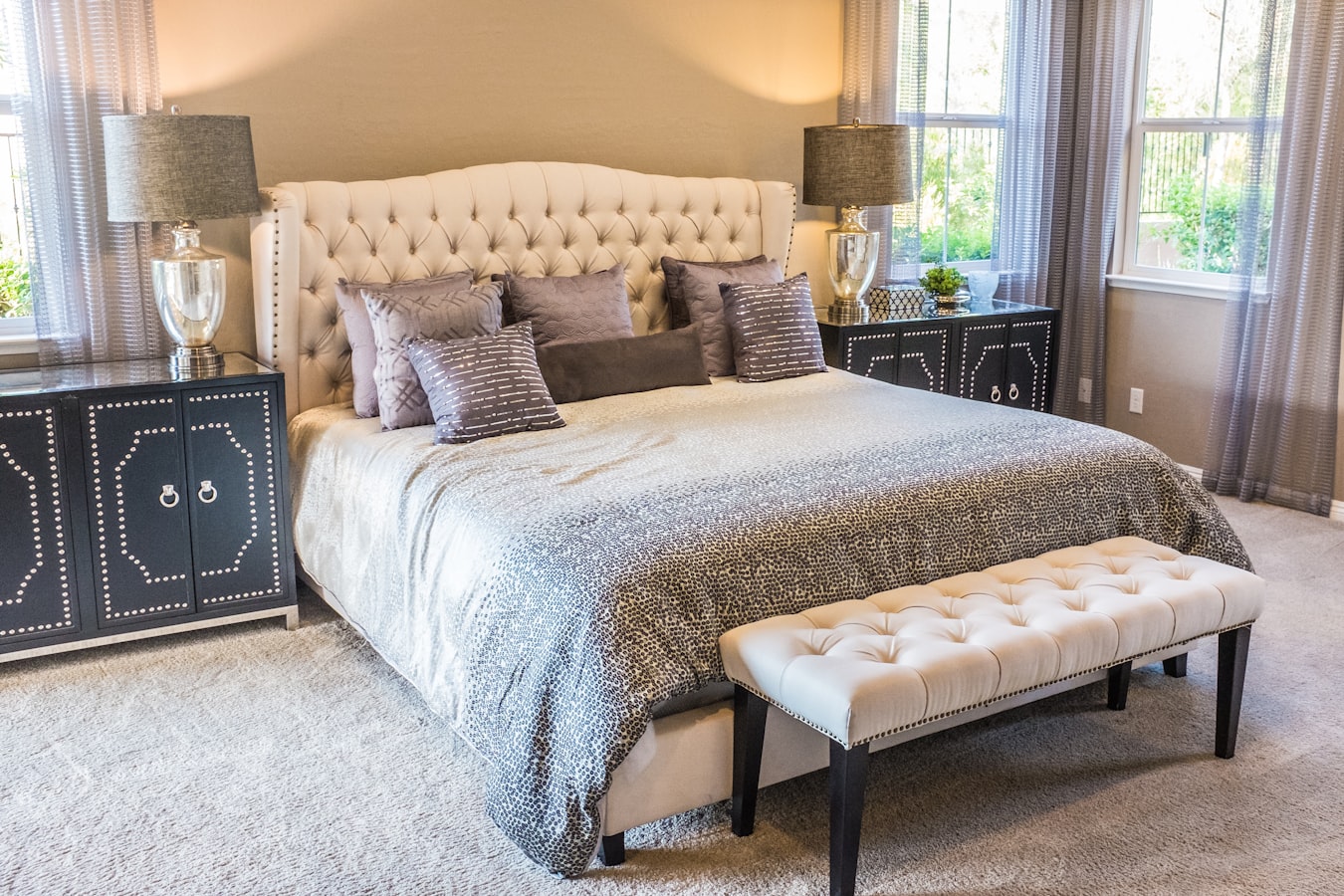Table of Contents
Your sleep environment plays a crucial role in the quality of your rest. Making a few strategic changes to your bedroom can significantly improve your sleep quality and duration.
Lighting Considerations:
• Use blackout curtains or blinds
• Install dimmable lights
• Avoid blue light from screens before bed
• Consider a sunrise alarm clock
Temperature and Air Quality:
• Keep room temperature between 60-67°F (15-19°C)
• Use a fan or air purifier for air circulation
• Maintain humidity between 30-50%
• Consider a humidifier or dehumidifier
Bed and Bedding:
• Invest in a quality mattress
• Choose breathable, natural fiber sheets
• Use appropriate pillows for your sleep position
• Consider a weighted blanket if you struggle with anxiety
Sound Environment:
• Use white noise or nature sounds
• Consider earplugs if needed
• Soundproof windows if in noisy area
• Keep electronics on silent mode
Creating a Sleep Sanctuary:
• Keep bedroom clean and clutter-free
• Use calming colors (blues, greens, neutrals)
• Add plants for air purification
• Reserve bed for sleep and intimacy only
Pre-Sleep Routine:
• Establish a consistent bedtime
• Create a relaxing pre-sleep ritual
• Avoid stimulating activities before bed
• Keep a sleep diary to track patterns
Remember: Your bedroom should be a sanctuary for sleep. Make it a priority to create an environment that promotes rest and relaxation.
About the Author
Dr. Lisa Chen
Health Expert
Dr. Lisa Chen is a health expert specializing in evidence-based nutrition and wellness strategies. With a focus on scientific research, they provide readers with practical insights for optimizing their health.
